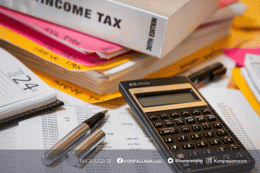Given the complexity of corporate financial reporting and the increasing risk of fraud, the role of auditors in preventing accounting manipulation is becoming increasingly important. Auditors not only verify the accuracy of financial statements, but also act as watchdogs to help prevent and detect fraud. According to Apandi and Nasution (2022), "Internal auditors help management achieve good performance by taking a systematic approach in assessing and improving the effectiveness of internal control". This shows that auditors are responsible for identifying weaknesses in the internal control system.
Financial statement fraud can harm various parties, including shareholders, creditors, and the wider community. Therefore, auditors must use appropriate audit techniques to identify signs of fraud, such as unusual transactions or inconsistent accounting policies. Mursalin's (2021) study highlights that "auditors have a responsibility to discover and detect internal fraud," emphasizing the importance of the auditor's role in maintaining the integrity of financial statements.
Implementing effective audit procedures can help companies reduce the risk of fraud. By understanding the operating environment and applying appropriate audit techniques, auditors can make recommendations to improve the internal control system. Therefore, the role of auditors in building transparency and accountability in today's business world is very important.
Definition of Accounting Manipulation
Accounting manipulation is an action deliberately taken by management to make financial information available to the public appear better than it actually is. Forms of accounting manipulation include fictitious revenue recognition, asset inflation, and liability concealment.
According to Jones (2011), accounting manipulation is also often used to achieve performance goals, increase stock prices, or avoid paying higher taxes. Such behavior directly affects public trust in the company and damages the company's reputation.
Examples of types of accounting manipulation:
- Revenue Manipulation: Obtaining revenue before it is realized or in an improper manner.
- Cost manipulation: Avoiding cost recognition to increase net income.
- Asset Manipulation: Inflating the value of assets with the aim of creating the impression that the financial condition of a company is better.
Auditors' Role in Preventing Accounting Manipulation
Auditors play a central role in maintaining the integrity of financial statements through a systematic and risk-based audit process. Their job is to provide an objective opinion on the financial statements of a company after thoroughly examining the accounting data presented by management.
Auditors use several methods to detect accounting manipulation, including risk analysis. Auditors identify areas with a high risk of manipulation, such as revenue, cost, and asset valuation reports.
In addition, technology also plays an important role in modern auditing. By using data analysis and artificial intelligence (AI)-based technologies, auditors can identify unusual patterns in financial transactions that may indicate manipulation. According to Bhasin (2016), the use of this technology allows auditors to detect anomalies that are difficult to find using traditional manual methods.







